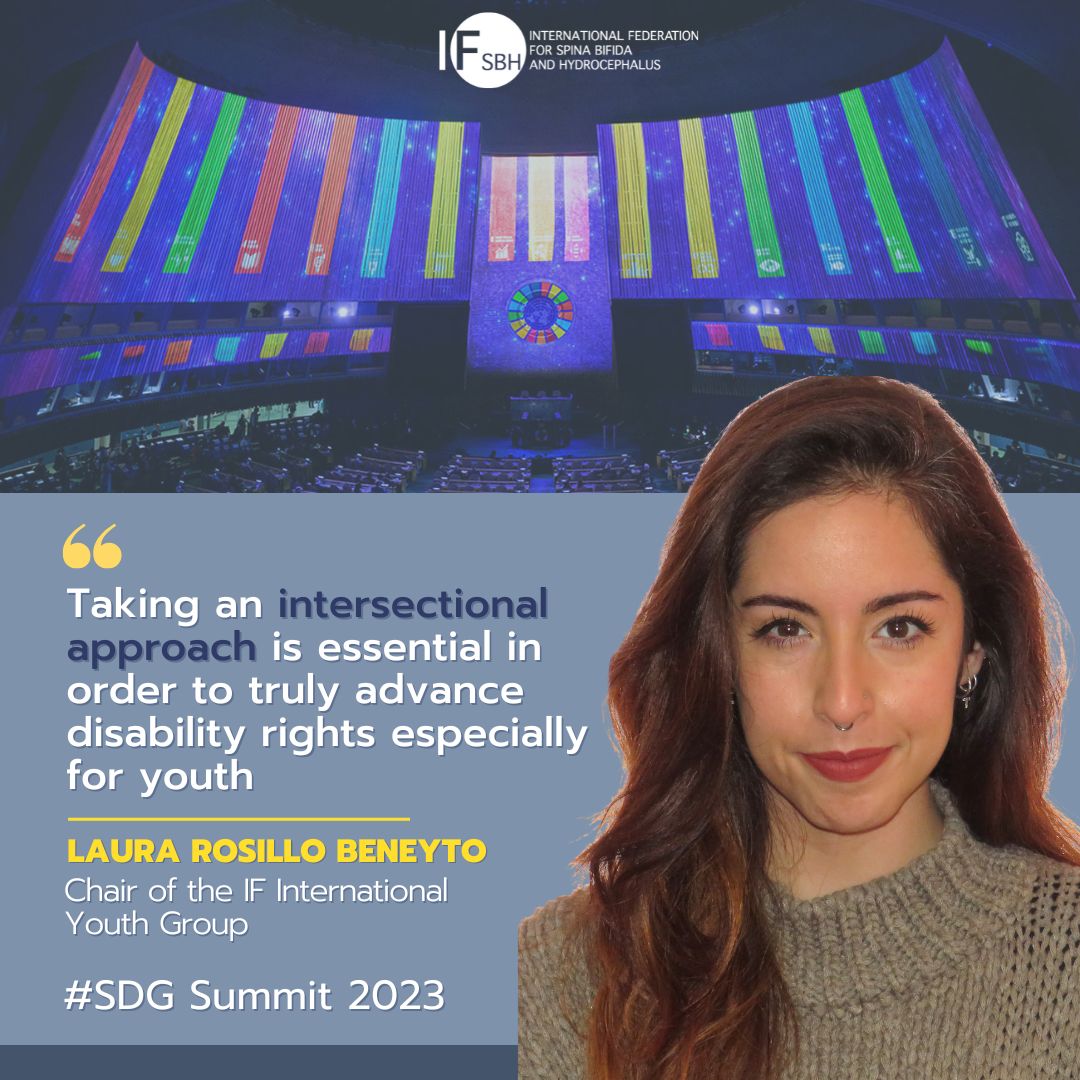Youth Engagement during the SDG Summit 2023 at the UN in New York

On September 16 2023, IF youth member LauraRosillo Beneyto represented the global disability community on behalf of IF and IDA at the youth pillar “Torchbearers for the SDGs: Meaningful Youth Engagement & the 2030 Agenda” during the SDG Action Weekend as part of the SDG Summit at the UN Headquarter in New York.
In this session, the need for an intersectional approach was highlighted. The SDGs reflect the disability movement’s own principle: ‘Nothing About Us Without Us’. Taking an intersectional approach is essential in order to truly advance disability rights.
Individuals with disabilities exist at the intersection of all identities (nationalities, ethnicities, cultures, religions, etc.) and within every community. The lived experiences of their disability (such as Spina Bifida and Hydrocephalus) and the societal barriers which they may face are influenced by all those different factors.
Laura, being a youth member of the International Disability Alliance and International Federation for Spina Bifida and Hydrocephalus it is our mission to ensure that every person with a disability has their human rights and freedoms fully recognized, without any form of discrimination. It is crucial that we have lifelong access to specialized healthcare and support services.
Through IF’s thematic working groups (e.g., women, youth, ageing) we continue to incorporate an intersectional approach to all IF activities, including its contribution to actions on gender equality and non discrimination as this is particularly important considering the higher risk of abuse, poverty and discrimination for women and girls with disabilities.
By taking an intersectional approach it advances overall anti-discrimination and inclusion objectives for instance to age and gender.
For example, in the recent statement by the IF youth group on independent living we highlighted the interconnected nature of independent living for persons with for example Spina Bifida and/or Hydrocephalus to a plethora of other policy areas are revealed throughout our work on variety of issues such as access to integrated multidisciplinary health care; ageing; mental, physical and sexual health; the COVID-19 pandemic; and mental health for youth with Spina Bifida and/or Hydrocephalus.
Barriers to independent living may be visible or invisible, societal, political or economic such as lack of accessible and affordable housing, support services for persons with disabilities which are inaccessible, challenges in accessing healthcare, scarce or unsupportive of individual choices and therefore independent living as defined in article 19 UNCRPD.
Difficulties or inability in accessing education and employment also impacts the ability of young people with disabilities in attaining financial independence which in turn impacts their ability to make choices on their living arrangements in a way that is equal to others
Young people with disabilities need greater recognition and understanding by policy makers on the international, national and local level.
The activities undertaken by the youth group have highlighted that persons with lived experiences know best the nature of the challenges and barriers that they face when attempting to realise their human rights as per the UNCRPD.
It is therefore vital to consult persons with disabilities and their representative organisations, including condition specific representative organisations in order to gain an understanding of what is required to enable persons with disabilities, including those with SBH, to live in the community with choices equal to others.
Watch Laura speak on behalf of the youth here: https://media.un.org/en/asset/k11/k11h0jx10q

